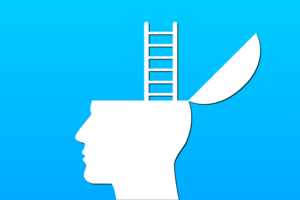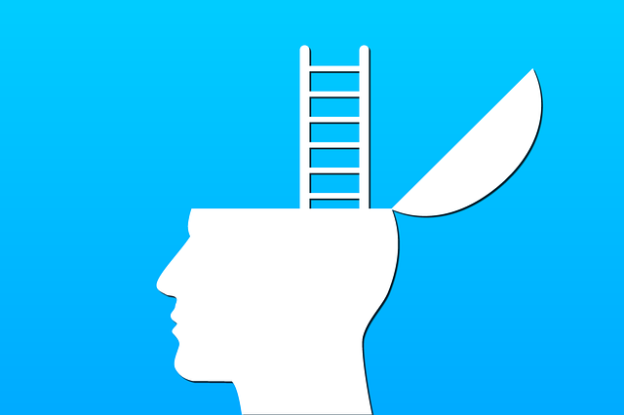Do you ever feel like your personal, social and emotional development is lagging behind? It’s like trying to ride a bike with one pedal missing. You can still move forward, but it’s a struggle.
Just as the missing pedal hinders progress in cycling, lacking personal, social and emotional skills can hinder progress in life.
Fortunately, there are activities that can help develop these essential skills. Practicing mindfulness and self-reflection allows you to better understand yourself and your emotions. Building relationships through communication and teamwork helps cultivate empathy and connection with others. Learning to identify and manage emotions in a healthy way improves mental health.
These activities all contribute toward leading a happier, healthier, and more fulfilling life. In this article we will explore some of the most effective personal, social and emotional development activities that you can incorporate into your daily routine for growth towards a better version of yourself.
Practicing Mindfulness and Self-Reflection
 You’ll find that practicing mindfulness and self-reflection can help you cultivate a deeper understanding of your thoughts and emotions, leading to greater self-awareness and personal growth.
You’ll find that practicing mindfulness and self-reflection can help you cultivate a deeper understanding of your thoughts and emotions, leading to greater self-awareness and personal growth.
Mindful breathing is one technique that can help you become more present in the moment, allowing you to observe your thoughts without getting caught up in them. By focusing on your breath, inhaling deeply through your nose and exhaling slowly through your mouth, you can calm yourself down and reduce stress.
Another tool for developing greater self-awareness is journaling. Writing down your thoughts and feelings on paper can help you make sense of them and gain clarity about what’s going on inside of you.
Journaling prompts can be helpful if you’re not sure what to write about. For example, you might try answering questions like “What am I grateful for today?” or “What’s been weighing on my mind lately?” or “What’s one thing I could do differently tomorrow to take care of myself?”
Overall, practicing mindfulness and self-reflection are powerful tools for personal growth. By taking time each day to breathe mindfully and reflect on our thoughts and emotions through journaling, we’re better able to understand ourselves, identify patterns that may be holding us back, and make positive changes in our lives.
So why not give it a try? You might just surprise yourself with the insights you gain!
Building Relationships through Communication and Teamwork
Can’t wait to see how you’ll improve your communication and teamwork skills in this section! Building relationships through effective collaboration techniques requires not only good communication but also the ability to work well with others. This skill is essential in both personal and professional settings as it promotes a positive environment where everyone can thrive.
Here are some ways to improve your communication and teamwork skills:
- Practice Active Listening: Pay attention, show interest, and repeat what you heard.
- Respect Other People’s Opinions: Recognize that there are different perspectives on any given issue.
- Use Positive Language: Choose words that encourage problem-solving instead of blaming or criticizing.
- Be Open to Feedback: Listen carefully and take constructive criticism positively.
- Learn Conflict Resolution Skills: Conflicts are inevitable; learn how to resolve them amicably.
By improving your communication and teamwork skills, you will enhance your relationships with others. Whether it’s at work or home, effective collaboration techniques will help you to build trust, respect, and ultimately lead to better outcomes for everyone involved.
Remember that building strong relationships takes time, patience, and effort. Keep practicing these essential skills every day!
Learning to Identify and Manage Emotions in a Healthy Way
Learning to identify and manage emotions in a healthy way is crucial for maintaining positive relationships and achieving success in various aspects of life. When you’re able to recognize triggers that cause negative emotions, you can take steps to manage them effectively.
It’s important to be mindful of the impact your emotional reactions have on others and communicate your feelings in a constructive manner. Recognizing triggers is the first step towards managing emotions in a healthy way. Whether it’s an argument with a friend or a stressful day at work, certain situations can trigger negative feelings like anger, frustration, or sadness.
By being aware of these triggers, you can prepare yourself mentally and emotionally to deal with them when they arise. You may find it helpful to take some time alone to reflect on what causes these emotional responses so that you can develop effective coping strategies.
Expressing feelings is another key aspect of managing emotions in a healthy way. When experiencing strong emotions, it’s important not to suppress them but instead express them constructively. This means communicating how you feel without attacking others or causing harm.
By expressing your feelings openly and honestly, you allow others to understand where you’re coming from and create an opportunity for resolving conflicts or finding solutions together. In conclusion, learning how to manage your emotions in a healthy way is essential for building positive relationships with others as well as achieving personal success.
Recognizing triggers and expressing feelings are two critical components that will help you navigate challenging situations with greater ease and effectiveness. By taking responsibility for your emotional responses and communicating them clearly, you can build stronger connections with those around you while also fostering greater self-awareness and resilience.
Improving Self-Awareness and Empathy
Improving self-awareness and empathy can enhance your ability to understand and connect with others on a deeper level, leading to stronger relationships and greater success in various areas of life. Developing emotional intelligence is key to improving these skills, as it involves recognizing your own emotions and understanding how they impact your thoughts, behaviors, and interactions with others.
By learning more about yourself, you can also become more attuned to the needs and perspectives of those around you. Understanding others’ perspectives is another important aspect of improving self-awareness and empathy. This involves putting yourself in someone else’s shoes to gain a better understanding of their experiences, thoughts, and feelings.
Doing so can help you communicate more effectively, resolve conflicts more successfully, and build stronger connections with those around you. It requires active listening skills and an open-minded approach that allows for different viewpoints.
Incorporating personal reflection into your daily routine is a great way to improve both self-awareness and empathy. Take time each day to think about your own emotions and how they may be impacting your interactions with others. Consider the perspectives of those around you as well by asking questions, actively listening to responses, and seeking out new experiences that challenge your assumptions.
With practice, these skills can become second nature – helping you build deeper connections with others while also enhancing your overall wellbeing.
Leading a Happier, Healthier, and More Fulfilling Life
You can live a life full of happiness, health, and fulfillment by making small changes in your daily routine that bring joy and purpose to each moment. One way to do this is by cultivating gratitude. Take some time each day to reflect on the things you’re thankful for, no matter how big or small they may seem. This practice shifts your focus away from what you lack and towards what you have, which can improve your overall mood and outlook on life.
Another way to lead a happier, healthier, and more fulfilling life is by pursuing hobbies that bring you joy. Whether it’s painting, playing music, gardening, or hiking, find something that makes you feel alive and dedicate time to it regularly. Having a hobby not only provides an outlet for creativity but also helps reduce stress levels and improves mental well-being.
Incorporating these two practices into your daily routine can significantly impact your overall quality of life. By cultivating gratitude and pursuing hobbies that bring joy into your life, you’ll develop a greater sense of purpose and fulfillment in everything that you do. Remember that leading a happy life isn’t about achieving perfection but rather finding contentment in the present moment with all its imperfections.
What is the best way to incorporate these activities into a busy schedule?
Managing a busy schedule can be overwhelming, but there are time management tips and prioritization techniques that can help you make the most of your day.
Start by identifying your priorities and focusing on accomplishing those tasks first. This will ensure that you’re tackling what’s most important before moving on to less urgent matters.
Another helpful tip is to break down larger projects into smaller, more manageable tasks. This not only makes them feel less daunting, but also allows you to see progress being made towards achieving your goals.
By incorporating these strategies into your daily routine, you’ll find that you have more time for personal, social, and emotional development activities without sacrificing productivity in other areas of your life.
How can these activities benefit individuals with mental health concerns?
If you’re struggling with mental health concerns, it’s important to prioritize your personal, social, and emotional development. Engaging in activities that promote self-care and positive relationships can have a significant impact on your overall well-being.
Finding ways to incorporate these activities into your daily life may seem overwhelming, but there are simple strategies you can use. Try setting aside time each day for meditation or journaling to help manage stress and increase mindfulness.
Make an effort to connect with loved ones regularly through phone calls or quality time together. By prioritizing personal, social, and emotional development in your life, you can improve your mental health and create a more fulfilling life experience.
What are some specific examples of activities for each section?
If you’re looking for ways to improve your mental health, consider incorporating activities like role playing and mindfulness exercises into your routine.
Role playing can help you develop empathy and communication skills by putting yourself in someone else’s shoes or practicing difficult conversations.
Meanwhile, mindfulness exercises can help reduce stress and anxiety by focusing on the present moment and cultivating a sense of calm.
By making these activities a regular part of your life, you may find that you feel more confident, connected, and emotionally balanced overall. Give them a try and see how they work for you!
Can these activities be adapted for different age groups?
Did you know that children’s brains develop rapidly from birth to age five? In fact, 90% of brain development happens during this time. That’s why it’s so important to provide children with activities that promote their personal, social and emotional development.
Adapting methods for different targeted age groups is crucial in ensuring that these activities are effective. For example, younger children may need more sensory-based activities, while older children may benefit from more role-playing and discussion-based activities. By tailoring the activity to the child’s age group, they’ll be more engaged and better able to learn and grow in all areas of development.
How can one measure progress in their personal, social, and emotional development through these activities?
To measure progress in your personal, social, and emotional development, self-reflection techniques can be incredibly helpful. Start by setting goals for yourself in each of these areas and then regularly check in with yourself to see how you’re doing.
You might keep a journal where you write about your experiences and emotions or use a tracking app to monitor your progress over time. Additionally, seek feedback from trusted friends or family members who can provide insight into how you’ve grown and changed.
Remember that personal growth is a journey, not a destination, so be patient with yourself as you work towards becoming the best version of yourself possible.
By engaging in mindfulness and self-reflection, building relationships through communication and teamwork, identifying and managing emotions in a healthy way, and improving self-awareness and empathy, you’re well on your way to leading a happier, healthier, and more fulfilling life.
However, you may be thinking that these activities seem time-consuming or difficult to incorporate into your daily routine. But remember that small changes can make a big difference. Taking just a few minutes each day to practice mindfulness or reflect on your emotions can have significant benefits for your overall well-being.
And by prioritizing communication and teamwork in your relationships, you can build stronger connections with those around you.
So don’t be discouraged if personal growth feels like an uphill battle at times. Remember that every step you take towards self-improvement is worth it in the end. Keep practicing these activities consistently, and soon enough, they’ll become second nature to you.
Your future self will thank you for investing in yourself today!








